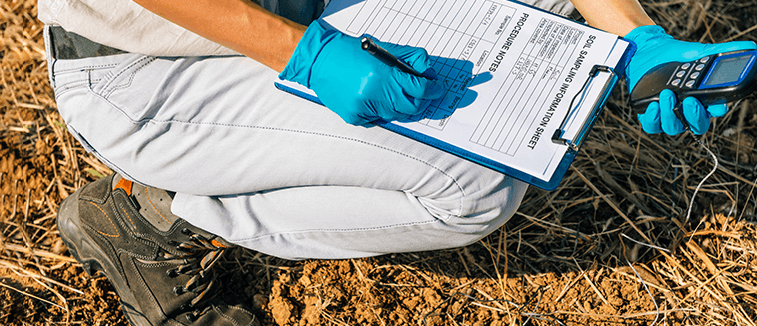Agronomist
Conduct and review research on soil management and crop cultivation to improve farm productivity.
Job opportunities
-
Jobs in Jobstreet right nowJob growth
-
In the last yearSalary
-
Typical monthly salaryJob satisfaction
-
Job opportunities
-
Jobs in Jobstreet right nowSalary
-
Typical monthly salaryJob growth
-
In the last yearJob satisfaction
-
On this page
- What's it like to be an Agronomist?
- How to become an Agronomist
- Latest Agronomist jobs
- Top skills and experience for Agronomists
What's it like to be an Agronomist?
Agronomists are trained to care for crops by gathering research data and explaining it to farmers through practical applications. However, they also do their own research in fields, farms, and orchards by checking the soil and crops for diseases and other issues. Their job involves mostly field work, and often requires them to walk, crouch, kneel, and carry light burdens.
Tasks and duties
- Studying all factors that affect crop production such as climate, pests, nutrition, and weeds.
- Gathering and reviewing data and samples of soil and crops.
- Interpreting findings and writing reports.
- Ensuring that good agronomic practices on applying seeds, irrigation, pesticides, and fertiliser are implemented.
- Managing the efficient use of farm equipment and materials.
- Training farming staff, and the sales and marketing team on agronomic processes.
- Coordinating with suppliers and laboratories.
How to become an Agronomist
To work as an Agronomist, you typically need to complete a relevant bachelor degree. There may be an opportunity to specialise in a particular field like research, crop production and management, sustainability, or soil and water conservation.
- 1.Finish a bachelor degree in agricultural science, agricultural engineering, or a related field. Each degree takes 3 years to finish, and teaches students how to manage resources for livestock and crop production in sustainable ways.
- 2.Get experience in an entry-level role such as Agricultural Technician or Agronomy Assistant. A junior-level Agronomist typically needs at least 2 years of relevant work experience.
- 3.Consider gaining certification. International programmes offered by the American Society of Agronomy can give you the following titles: Certified Crop Adviser, Certified Professional Agronomist, and Certified Professional Soil Scientist. Such certifications assure employers that your skills and knowledge meet professional standards. It also shows your initiative to further your competencies.
- 4.Consider enrolling in Graduate School. If you aim to grow your career in research or academia, a masters degree can strengthen your theoretical and practical knowledge on biochemistry, plant genetics, and crop management.
Compare your salary
Find out how your salary compares with the average salary for Agronomists.Latest Agronomist jobs on Jobstreet
Be one of the first to discover these recently listed jobs, or browse all Agronomist jobs on Jobstreet right now.Did you find this helpful?
Skills and experience employers are looking for
Having the right skills and experience can make you an in-demand applicant. Agronomist employers on Jobstreet are looking for job seekers with expertise in the following areas. Agronomy
Agriculture
Plant Science
Soil Science
Planting
Oil Palm Nursery
Hydroponics
Pest Management
Nutrition
Harvesting
Plantation
Agricultural Practice
Agricultural Science
Plantation Management
Farming
Irrigation
Data Collection
Farm Operations
Agriculture Industry
Written Communication
Source: Jobstreet job ads and Jobstreet Profile data
Did you find this helpful?